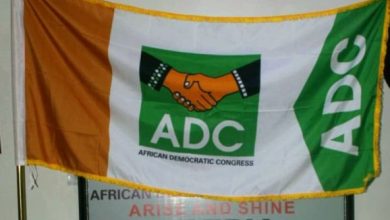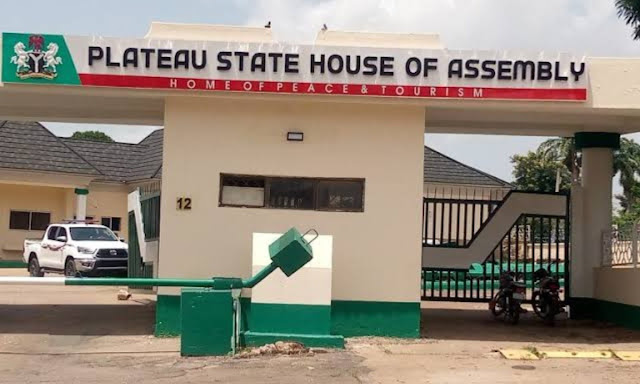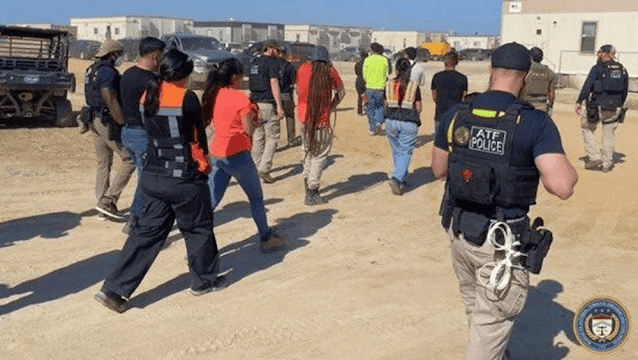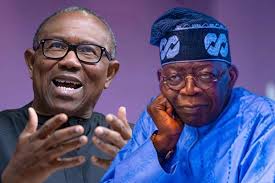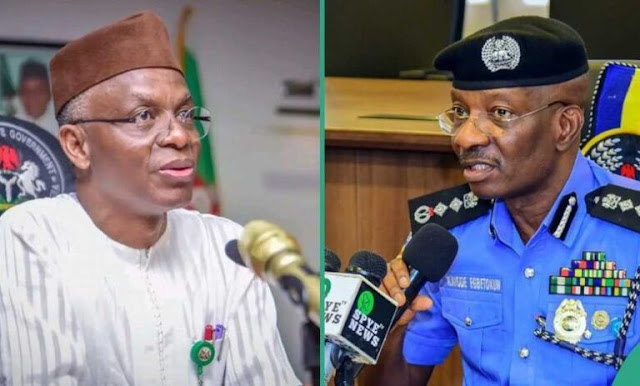Lagos, Nigeria – September 5, 2025 – In a dramatic turn of events, the Lagos State Police Command sealed off a venue in the Ikeja area of Lagos, where the African Democratic Congress (ADC) was scheduled to hold a crucial meeting. The abrupt closure of the venue, identified as the Lagos Airport Hotel, has ignited a firestorm of controversy, with ADC leaders accusing authorities of political suppression and undermining democratic processes. The incident, which occurred on Thursday, September 4, 2025, has raised significant concerns about the state of political freedom in Nigeria, a nation grappling with complex socio-political dynamics as it navigates its democratic journey.
The Incident: A Sudden Clampdown
The African Democratic Congress, one of Nigeria’s opposition political parties, had planned to hold a stakeholders’ meeting at the Lagos Airport Hotel in Ikeja, a bustling commercial hub in Nigeria’s economic capital. The meeting was intended to bring together party leaders, members, and supporters to discuss critical issues, including the party’s strategy for upcoming elections, internal reforms, and its role in shaping Nigeria’s political landscape. However, before the event could commence, officers from the Lagos State Police Command arrived at the venue and sealed it off, preventing the ADC from proceeding with the gathering.
According to eyewitness accounts, police officers, armed and in significant numbers, cordoned off the premises of the hotel, citing “security concerns” as the reason for their actions. The sudden and forceful intervention caught ADC members off guard, as the party had reportedly secured all necessary permits and complied with legal requirements for holding the event. The police action effectively halted the meeting, leaving party members stranded outside the venue and sparking outrage among ADC leadership and supporters.
The ADC’s Lagos State Chairman, who spoke to journalists at the scene, expressed dismay at what he described as an “undemocratic assault” on the party’s right to assemble. “This is a blatant attempt to silence the opposition and stifle our efforts to engage with our members and plan for the future,” he stated, his voice heavy with frustration. “We followed all protocols, informed the relevant authorities, and yet, here we are, locked out of our own meeting. This is not what democracy looks like.”
Official Police Response
The Lagos State Police Command, through its spokesperson, offered a brief explanation for the action, stating that the decision to seal off the venue was based on intelligence reports suggesting potential disruptions during the ADC’s meeting. The spokesperson, who declined to provide specific details about the nature of the alleged threats, emphasized that the police were acting to maintain public safety and order. “The Lagos State Police Command is committed to ensuring the security of all residents,” the spokesperson said. “Our actions were guided by credible information, and we will not allow any gathering that could jeopardize peace in the state.”
However, the police’s vague justification did little to quell the growing discontent among ADC members and political observers. Critics argued that the use of “security concerns” as a pretext for shutting down a legitimate political gathering was a troubling sign of overreach by law enforcement and a potential abuse of power by state authorities.
Political Context: The ADC and Nigeria’s Opposition Landscape
To fully understand the significance of this incident, it is essential to examine the broader political context in which it occurred. The African Democratic Congress, though not as prominent as Nigeria’s dominant political parties—the All Progressives Congress (APC) and the Peoples Democratic Party (PDP)—has been working to establish itself as a viable alternative in the country’s political arena. Founded in 2005, the ADC has positioned itself as a progressive platform advocating for good governance, economic reform, and social justice. In recent years, the party has sought to expand its influence, particularly in urban centers like Lagos, where it has been mobilizing support among young voters and disillusioned citizens.
Nigeria’s political landscape is notoriously competitive and often fraught with tensions between the ruling party and opposition groups. The APC, which has been in power at the federal level since 2015, has faced criticism for its handling of economic challenges, insecurity, and governance issues. Opposition parties, including the ADC, have capitalized on public dissatisfaction to push for change, often facing significant hurdles in their efforts to organize and gain traction.
The sealing off of the ADC’s meeting venue in Lagos is not an isolated incident but part of a broader pattern of challenges faced by opposition parties in Nigeria. Over the years, there have been numerous reports of state interference in political activities, including the disruption of rallies, arrests of opposition figures, and restrictions on freedom of assembly. These actions have fueled accusations that the ruling party uses state institutions, such as the police, to suppress dissent and maintain its grip on power.
Reactions from Political Stakeholders
The incident at the Lagos Airport Hotel has elicited strong reactions from various quarters, including political analysts, civil society organizations, and human rights groups. Many have condemned the police action as an affront to democratic principles, arguing that it undermines the fundamental rights of association and expression guaranteed by Nigeria’s constitution.
A prominent Lagos-based political analyst, Dr. Adebayo Ogunleye, described the incident as a “dangerous precedent” for Nigeria’s democracy. “When the police, an institution meant to protect citizens, are used to disrupt legitimate political activities, it raises serious questions about the impartiality of state actors,” he said in an interview. “This kind of action erodes public trust in the democratic process and risks alienating citizens who are already frustrated with the system.”
Civil society groups, such as the Coalition for Democratic Governance (CDG), echoed these sentiments, calling for an immediate investigation into the police’s actions. In a press statement, the CDG demanded transparency from the Lagos State Police Command and urged the federal government to ensure that security agencies operate within the bounds of the law. “The right to peaceful assembly is sacrosanct,” the statement read. “Any attempt to curtail this right under the guise of security must be thoroughly scrutinized and addressed.”
Meanwhile, some supporters of the ruling APC have defended the police action, arguing that maintaining law and order is paramount, especially in a city like Lagos, which has a history of political volatility. A pro-APC commentator, speaking anonymously, suggested that the ADC’s meeting may have been perceived as a potential threat to public peace, particularly if it involved discussions that could incite unrest. However, this perspective has been met with skepticism by neutral observers, who note that no evidence has been presented to substantiate claims of a security threat.
Broader Implications for Nigeria’s Democracy
The sealing off of the ADC’s meeting venue has far-reaching implications for Nigeria’s democratic landscape, particularly as the country approaches another election cycle. With general elections expected in 2027, political parties are already intensifying their activities, mobilizing supporters, and strategizing for the polls. The incident in Lagos raises questions about whether opposition parties will be allowed to operate freely in the lead-up to these elections or whether they will face increasing restrictions from state authorities.
For the ADC, the incident represents a significant setback in its efforts to build momentum and expand its influence. The party has already struggled to compete with the financial and organizational might of the APC and PDP, and disruptions like this could further weaken its ability to organize effectively. Moreover, the public nature of the police action sends a chilling message to other opposition groups, potentially discouraging political participation and activism.
Beyond the immediate impact on the ADC, the incident highlights broader challenges facing Nigeria’s democracy. The country has made significant strides since its return to democratic rule in 1999, but issues such as electoral violence, political intimidation, and the misuse of state power continue to undermine public confidence in the system. The role of security agencies, particularly the police, has been a recurring point of contention, with accusations of partisanship and selective enforcement of the law.
Historical Parallels and Lessons
The sealing off of the ADC’s meeting venue is reminiscent of past instances where Nigerian authorities have been accused of targeting opposition groups. During the military regimes of the 1980s and 1990s, political gatherings were frequently banned, and opposition leaders faced harassment and imprisonment. While Nigeria’s current democratic dispensation is far removed from those dark days, incidents like the one in Lagos serve as a reminder that democratic gains are fragile and must be actively protected.
In 2019, for instance, there were reports of opposition rallies being disrupted in several states, with security agencies citing similar “security concerns” as justification. These incidents sparked widespread condemnation and led to calls for reforms in how security agencies engage with political actors. However, progress has been slow, and the events in Lagos suggest that these issues remain unresolved.
The Way Forward: Calls for Accountability and Dialogue
As the controversy over the Lagos Airport Hotel incident continues to unfold, there is a growing consensus among political observers that urgent steps are needed to address the underlying issues. First and foremost, there is a need for greater transparency and accountability from the Lagos State Police Command. The public deserves a clear and detailed explanation of the intelligence that prompted the sealing of the venue, as well as assurances that such actions will not become a pattern.
Additionally, there is a need for dialogue between political parties, security agencies, and other stakeholders to establish clear guidelines for political activities. Such dialogue could help prevent future misunderstandings and ensure that all parties are able to exercise their democratic rights without fear of interference.
For the ADC, the incident presents both a challenge and an opportunity. While the disruption of its meeting is undoubtedly a setback, it also provides the party with a platform to highlight its grievances and rally public support. By framing the incident as an attack on democracy, the ADC could galvanize its base and attract sympathy from Nigerians who are disillusioned with the status quo.
The Role of Civil Society and the Media
Civil society organizations and the media have a critical role to play in ensuring that incidents like this are not swept under the rug. By amplifying the voices of those affected and holding authorities accountable, these groups can help safeguard Nigeria’s democratic space. Already, several media outlets have covered the incident extensively, with editorials calling for greater respect for political freedoms.
Social media platforms, particularly X, have also been abuzz with reactions to the incident. Posts from ADC supporters and neutral observers have condemned the police action, with hashtags such as #FreeADC and #DemocracyUnderThreat trending in Nigeria. These platforms provide an avenue for public discourse and mobilization, allowing citizens to express their views and demand accountability from their leaders.
Conclusion: A Test for Nigeria’s Democracy
The sealing off of the ADC’s meeting venue in Lagos is more than just a localized incident; it is a test of Nigeria’s commitment to democratic principles. As the country navigates its complex political landscape, incidents like this serve as a reminder of the challenges that lie ahead. For Nigeria to sustain its democratic progress, all stakeholders—government, security agencies, political parties, and citizens—must work together to uphold the rule of law and protect the rights of all.
The African Democratic Congress, though shaken by the events of September 4, 2025, remains resolute in its mission to advocate for a better Nigeria. As the party regroups and plans its next steps, the incident in Lagos will likely serve as a rallying cry for its members and a call to action for all Nigerians who believe in the promise of democracy. Whether this moment becomes a turning point for the ADC and Nigeria’s opposition or a cautionary tale of democratic backsliding remains to be seen. What is clear, however, is that the struggle for political freedom in Nigeria is far from over.


